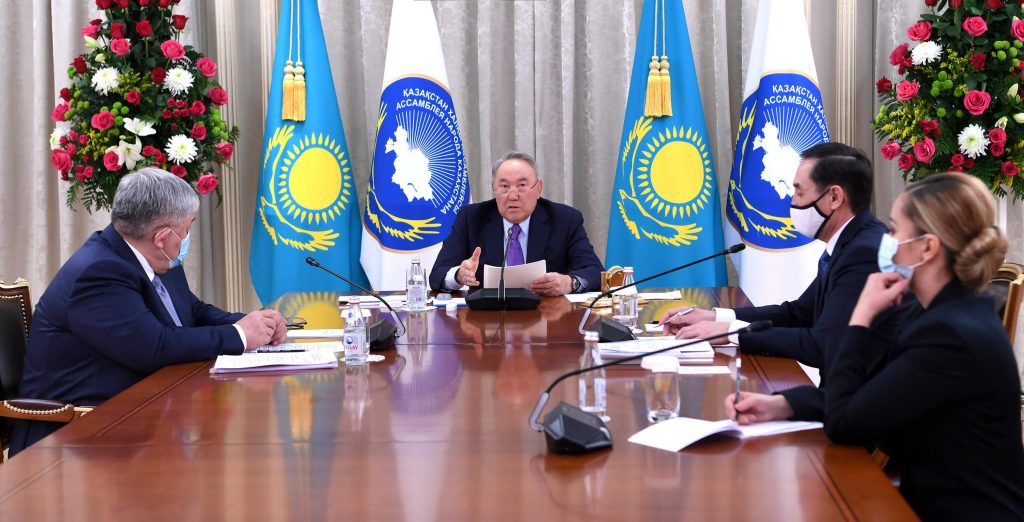 Kazakhstan’s First President Nursultan Nazarbayev believes that the country’s diversity is a key competitive advantage.
Kazakhstan’s First President Nursultan Nazarbayev believes that the country’s diversity is a key competitive advantage.
“We have turned the diversity of society to our advantage. This is now a known competitive advantage of Kazakhstan,” he said at the 29th session of Kazakhstan’s Assembly of People on April 28 in Nur-Sultan.
“The model of ethnic harmony that we have created is based on leading international legal standards and is now recognised throughout the world. The domestic formula of peace and harmony has become a way of life, a moral imperative, an invaluable wealth and an asset of our state.”
The Assembly of People of Kazakhstan was established at the initiative of Mr Nazarbayev in 1995. The institution, which represents various ethnic groups, aims to ensure socio-political stability in the country and improve cooperation between state institutions and civil society in the sphere of ethnic relations.
Maintaining stability in the country has been a priority for Mr Nazarbayev, who was in office for nearly three decades.
“All these years I have always put unity, well-being, harmony, security and stability first,” he said. I have heard some people say ‘here he goes again – stability and stability!’ Well, what is better? Instability? And we see where instability goes. From revolution to revolution, from war to war, the country does not develop – it lags behind. So stability and peace of mind of the citizens are up to all of us.”
In a rapidly changing world that continues to witness religious tensions and xenophobic sentiments, unity and accord between people are ever more important.
These challenges are becoming heightened, especially with the massive burden of Covid-19 on public health.
Over the years, the Assembly of People has sought to ensure that every citizen, regardless of ethnic or religious background, feels part of the large and united Kazakhstani family.
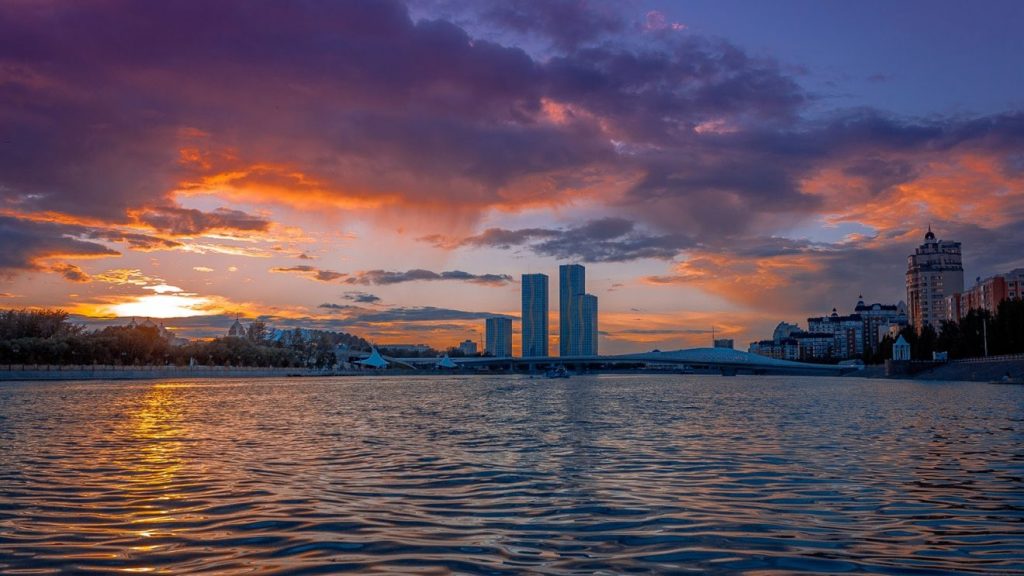 As Kazakhstan celebrates its 30th anniversary of independence in 2021, the formation and strengthening of the national sovereignty and statehood are inextricably linked with the name of Mr Nazarbayev.
As Kazakhstan celebrates its 30th anniversary of independence in 2021, the formation and strengthening of the national sovereignty and statehood are inextricably linked with the name of Mr Nazarbayev.
The path to true Independence was difficult and thorny. As Mr Nazarbayev himself emphasises, “over these years, Kazakhstan had a bumpy ride, which took centuries for other states”.
In a short time, the people of Kazakhstan, under the leadership of Mr Nazarbayev, has made tremendous progress in all spheres of activity. This is basically due to the far-sighted policies: Transition from a planned to a market economy, improving living standards, formation of a legal and democratic state, creating a welfare state and further strengthening the state’s sovereignty, security and stability and deepening state-building.
The formation of Kazakhstan as an independent state with a market economy was due to a radical change in the way of life, thinking and action. Mr Nazarbayev’s policy was aimed at the development of the country according to the fundamental principle “economy first, then politics”.
Three decades of Independence have become an era of economic progress and sustainable development for Kazakhstan. The nation has become a leader in the implementation of the most successful and large-scale market reforms in the post-Soviet era.
The European Union and the United States recognised Kazakhstan as the first post-Soviet state with a market economy. Since independence, Kazakhstan has received US$350 billion in foreign direct investment, which is 70 per cent of the total investment flow to Central Asia.
This was the result of the success of the policy of openness and trust pursued by the leadership, supported by stability and harmony in the society.
Over the last three decades, the GDP has grown 18 times, more than 300,000 jobs and 1,250 new industrial enterprises have been created. In 2006, according to the World Bank, Kazakhstan joined the ranks of upper-middle-income countries.
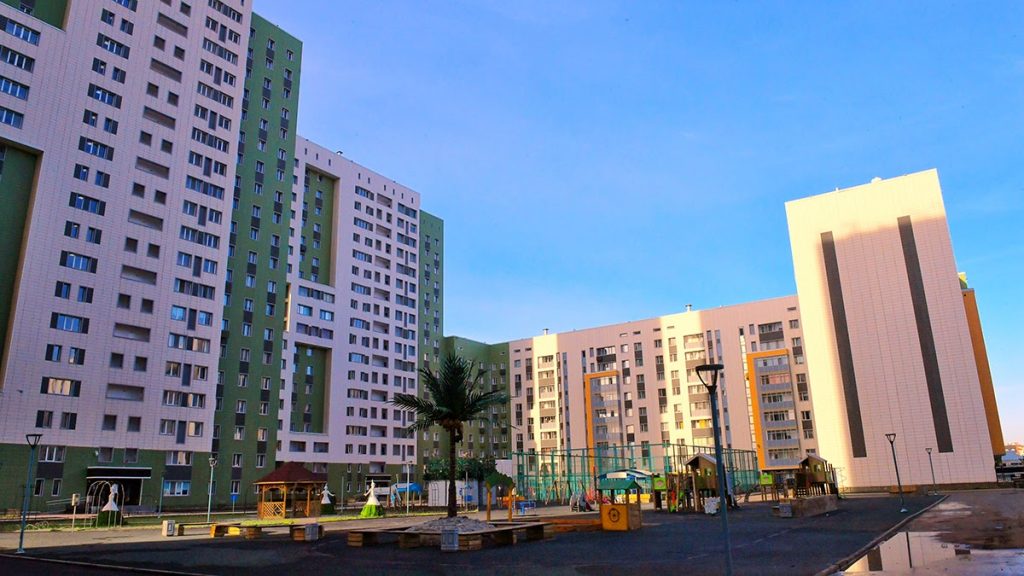 In 2012, Kazakhstan was among the 50 most competitive economies in the world. On November 30, 2015, Kazakhstan became a full member of the World Trade Organisation. Now it exports more than 2,500 items to more than 100 countries around the world.
In 2012, Kazakhstan was among the 50 most competitive economies in the world. On November 30, 2015, Kazakhstan became a full member of the World Trade Organisation. Now it exports more than 2,500 items to more than 100 countries around the world.
Kazakhstan is one of the CIS leaders in socio-economic transformation. Economic development has contributed to people’s prosperity. Since 1991, the average salary of Kazakhs has increased 17 times and the pension 10 times.
In 1991, Kazakhstan had a population of 16,793,000. It grew to 18,953,799 by the end of 2020. The birth rate has increased by 60% and the life expectancy from 64 years to 72 years.
Three cities – Nur-Sultan, Almaty and Shymkent – received the status of cities with more than 1 million inhabitants. More than 100 million square metres of housing were commissioned and 1,500 schools, more than 2,700 kindergartens and hundreds of colleges were built.
Mr Nazarbayev’s consistent policies have ensured national unity, economic success and equality for the people. He put forward the idea of creating the Assembly of People. Equal opportunities were created for all citizens, regardless of ethnicity and religion. Social peace was preserved and ethnic and religious harmony developed.
Currently, the uniqueness of the Assembly of People is recognised all over the world. Its has become an international brand and serves as a link between civil society and the state.
The activities of the Assembly and the Congresses of Leaders of World and Traditional Religions, regularly held in Nur-Sultan since 2003, have contributed to Kazakhstan’s standing as a country that effectively solves the problems of ethnic relations.
UN Secretary General Kofi Annan, during his visit to Kazakhstan, called the ANC an example of ethnic harmony, stable, sustainable development for other states of the world. Pope John Paul II, who visited Kazakhstan in 2001, spoke highly of the Kazakhstan people.
Nur-Sultan, a unique project of Mr Nazarbayev, is a successful symbol of independent Kazakhstan. It is the northernmost capital in Asia. In 1999, UNESCO awarded it the title City of Peace. Since 2000, the main city of Kazakhstan has been a member of the International Assembly of Capitals and Cities.
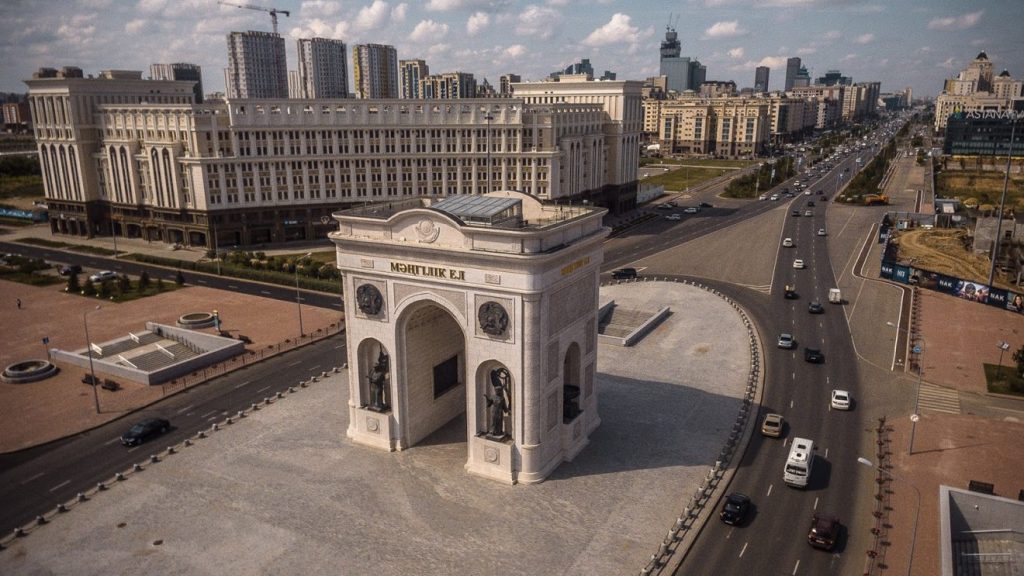 Over the past 30 years, Kazakhstan has become a strategically important player in the world and an undisputed leader in Central Asia.
Over the past 30 years, Kazakhstan has become a strategically important player in the world and an undisputed leader in Central Asia.
Kazakhstan’s renunciation, at the dawn of Independence, of the world’s fourth-largest nuclear-weapon stockpile contributed to it gaining the confidence of the major powers and ensured the goodwill of the international community. It also led to the Republic being considered one of the leaders of the global anti-nuclear movement.
In 2015, at the initiative of Kazakhstan, the UN General Assembly adopted the Nuclear-Weapons-Free World Declaration.
Kazakhstan has developed a multilateral and peaceful foreign policy and established diplomatic relations with 183 countries. It is a member of the Commonwealth of Independent States (CIS), the Eurasian Economic Union (EAEU), the Shanghai Cooperation Organisation (SCO), the Collective Security Treaty Organisation (CSTO), the United Nations, the OSCE, the Euro-Atlantic Partnership Council, the Turkic Council and the Organisation of Islamic Cooperation.
Thanks to the active foreign policy activities and international initiatives of Mr Nazarbayev, Kazakhstan played a key role in the creation of organisations such as the EAEU, CSTO, SCO and the Turkic Council. Kazakhstan was the first among the CIS countries to host the OSCE Summit and the World EXPO.
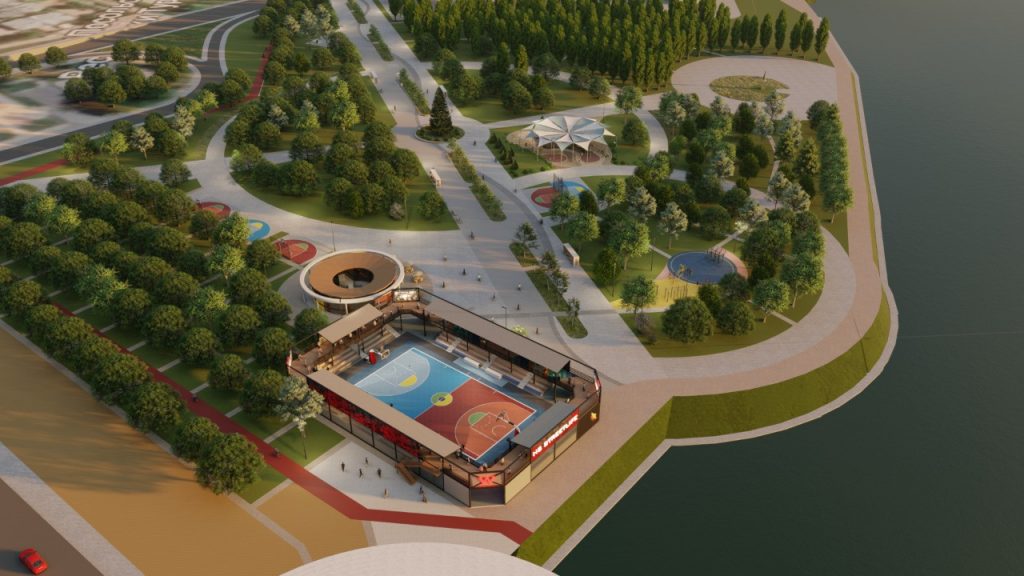 As current President Kassym-Jomart Tokayev has noted: “Independence serves as a strong pillar of Kazakhstan’s statehood. For Kazakhstan, a country with a rich history and deep roots, there is no greater value. It is the most precious treasure, the most precious possession.
As current President Kassym-Jomart Tokayev has noted: “Independence serves as a strong pillar of Kazakhstan’s statehood. For Kazakhstan, a country with a rich history and deep roots, there is no greater value. It is the most precious treasure, the most precious possession.
“That is why we value the Independence that our ancestors dreamed of. Sovereignty is an invaluable asset that not every nation possesses. The chronicle of our Independence is closely linked with the historical figure of the First President – Elbasy.”
For Kazakhstan, 2021 promises to be a historic and milestone year as it is entering a new period of 10-year development.
According to the International Monetary Fund, Kazakhstan was placed 52nd by GDP per capita in 2019-2020. Taking into account the pandemic, the rate of economic growth can reach, by the end of 2021, the pre-crisis value of 3.7 to 4 per cent.
This indicator places Kazakhstan among the economic leaders in Central Asia, generating around 60 per cent of GDP in the region.
Clearly, independence was a significant event for Kazakhstan which marked the beginning of the creation of a new democratic state, a new society.







